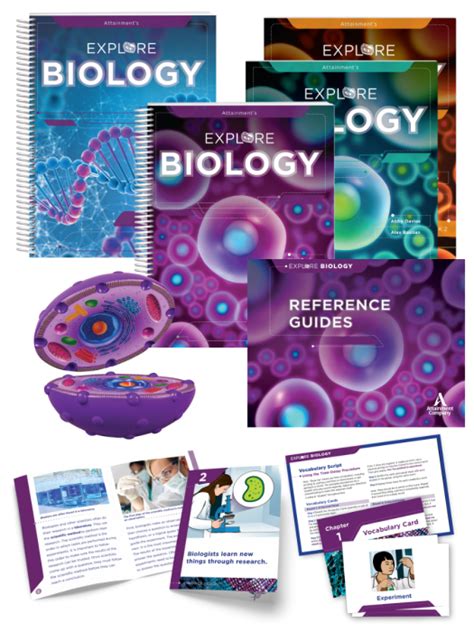The fascinating world of biology is full of intricate concepts and processes that shape our understanding of living organisms and their interactions with the environment. From the molecular machinery of cells to the complex ecosystems that support life on Earth, biology is a rich and dynamic field that has far-reaching implications for various aspects of our lives. In this article, we will delve into some fundamental biology concepts and explore their real-world applications, highlighting the significance of biology in addressing some of the most pressing challenges facing humanity.
The Importance of Biology in Everyday Life
Biology is often perceived as a abstract subject, confined to the realm of academia and research. However, the truth is that biology plays a vital role in our daily lives, influencing everything from our health and well-being to the food we eat and the environment we inhabit. By understanding biological principles and processes, we can develop innovative solutions to real-world problems, such as disease prevention, sustainable agriculture, and conservation.

Biological Concepts and Their Applications
Let's explore some fundamental biology concepts and their real-world applications:
- Photosynthesis: This process, by which plants, algae, and some bacteria convert sunlight into energy, is crucial for life on Earth. Understanding photosynthesis has led to the development of more efficient solar panels and biofuels.
- Genetics: The study of genes and their role in inheritance has revolutionized medicine, enabling the diagnosis and treatment of genetic disorders. Genetic engineering has also led to the development of crops that are more resilient and nutritious.
- Ecology: The study of ecosystems and the interactions between organisms and their environment has informed conservation efforts and sustainable practices, such as reforestation and renewable energy.
- Microbiology: The study of microorganisms has led to the development of antibiotics, vaccines, and other medical treatments. Microbes also play a crucial role in environmental processes, such as decomposition and nutrient cycling.
Real-World Applications of Biology
Biology has numerous real-world applications that impact various aspects of our lives. Some examples include:
Health and Medicine
- Disease diagnosis and treatment: Biology has led to the development of diagnostic tools and treatments for various diseases, such as genetic disorders and infectious diseases.
- Vaccine development: Biologists have developed vaccines that have saved countless lives and prevented the spread of diseases.
- Cancer research: Biologists are working to understand the biology of cancer, leading to the development of more effective treatments.

Environmental Conservation
- Conservation biology: Biologists are working to understand and protect endangered species and ecosystems.
- Sustainable agriculture: Biologists are developing more sustainable agricultural practices, such as permaculture and regenerative agriculture.
- Climate change: Biologists are studying the impacts of climate change on ecosystems and developing strategies to mitigate its effects.
Food Security and Sustainable Agriculture
- Crop development: Biologists are developing crops that are more resilient, nutritious, and sustainable.
- Food safety: Biologists are working to ensure the safety of our food supply, developing methods to detect and prevent foodborne illnesses.
- Sustainable agriculture: Biologists are developing more sustainable agricultural practices, such as permaculture and regenerative agriculture.

Conclusion
In conclusion, biology is a fascinating field that has far-reaching implications for various aspects of our lives. By understanding biological principles and processes, we can develop innovative solutions to real-world problems, such as disease prevention, sustainable agriculture, and conservation. As we continue to explore and learn more about the natural world, we can harness the power of biology to create a better future for all.






What is biology?
+Biology is the scientific study of life and living organisms, including their structure, function, growth, evolution, distribution, and taxonomy.
Why is biology important?
+Biology is important because it helps us understand the natural world and the impact of human activities on the environment. It also has numerous practical applications in fields such as medicine, agriculture, and conservation.
What are some real-world applications of biology?
+Some real-world applications of biology include disease diagnosis and treatment, vaccine development, conservation biology, sustainable agriculture, and climate change research.
